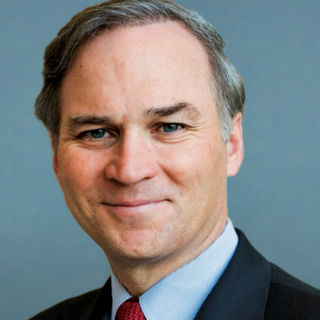
Many brilliant individuals are credited with the invention of the telegraph and the idea of an underground cable running between two continents. But there was one person who took the idea of a transatlantic cable and made it reality. Most of us have never heard of him. His name is Cyrus Field.
Now Cyrus Field wasn’t a telegraph engineer or even an inventor. He started out as an errand boy in New York City at the age of fifteen, and later went into paper manufacturing. He knew little about technology or cables. But one thing Cyrus did understand was possibilities. Cyrus Field was tapped to help with the project because he knew processes, how to secure charters, and how to raise funds. He knew how to make ideas happen. Thanks to Cyrus, in 1866, the first permanent transatlantic cable was successfully laid, reducing the time to send a message from 10 days to a matter of minutes – and changing the trajectory of global communication forever.
Each of us can probably recall the inventors that history has labeled the “big idea” people – the Alexander Graham Bells, the Thomas Edisons, the George Washington Carvers, and the Steve Jobs of the world. But there is another group of people affecting innovation in our nation. They are the ones who, like Cyrus Field, are working behind the scenes, figuring out how to make big ideas a reality. They are constantly observing how the world works, and finding ways to bring it closer together, build the future, and move our country forward.
We have our own Cyrus Fields in America today. Many of them work in our nation’s manufacturing sector taking the ideas, building them, and bringing them to life. They are the minds that make things happen. Here in the Fourth District,we’re fortunate to have a strong manufacturing industry. From Richmond, to Hopewell, to Chesapeake, to Suffolk, factories and plants bustle with new product innovations and development that keep our nation running. The Fourth District is home to everything from well-known food and beverage producers to packaging producers, to nylon fiber manufacturers, who keep our servicemembers safe. Virginia’s manufacturing industry powers much of the Commonwealth’s economy, employing thousands of individuals.
This culture of hard work, creativity, and solution-based leadership is deeply ingrained in our history. It’s in our DNA as a nation. It’s what carries our country through hard times, and drives our manufactures to push forward despite the mountains of federal regulations that often unnecessarily stifle their freedom to create. But just imagine what these minds could achieve if we could lift these burdens from their shoulders. If, instead of being forced to figure out how to navigate bureaucratic red tape handed down by Washington, they could focus on how to make new ideas work. The industry would surely flourish. That’s why I’m working to repeal regulations that cost nearly $2 trillion and stifle the manufacturing industry’s freedom to build and grow. I’m fighting to streamline the permitting process and halt job-killing regulations. I supported key trade legislation to make sure locally based manufacturing companies maintain access to international markets.
The federal government should be finding ways to encourage our nation’s manufacturers to do what they do best – making new ideas work – not forcing them into Washington’s clunky way of doing things. We need to take proactive steps to empower bright minds for success in the future. That means supporting the expansion of science, math, engineering, and technology education across the nation. It means creating incentives for university-to-business partnerships to foster concepts like Virginia’s own Commonwealth Center of Advanced Manufacturing (CCAM) and promote a new generation of advanced manufacturing jobs. It also means supporting Career Technical Education (CTE) at an earlier age to produce a well-equipped workforce able to answer business’s demand for highly trained employees that will keep us competitive in the global economy.
America isn’t powered by politicians behind podiums with powerful rhetoric. It certainly isn’t powered by bureaucrats handing down regulations. America has always been powered by people behind the scenes, working hard, planning for the future, making ideas happen, and putting America to work. It is crucial that we cultivate a culture that respects and rewards those values. To keep this culture strong is to benefit our manufacturing industry – and to benefit the future of our nation.
Randy Forbes represents the Fourth District of Virginia in Congress.










